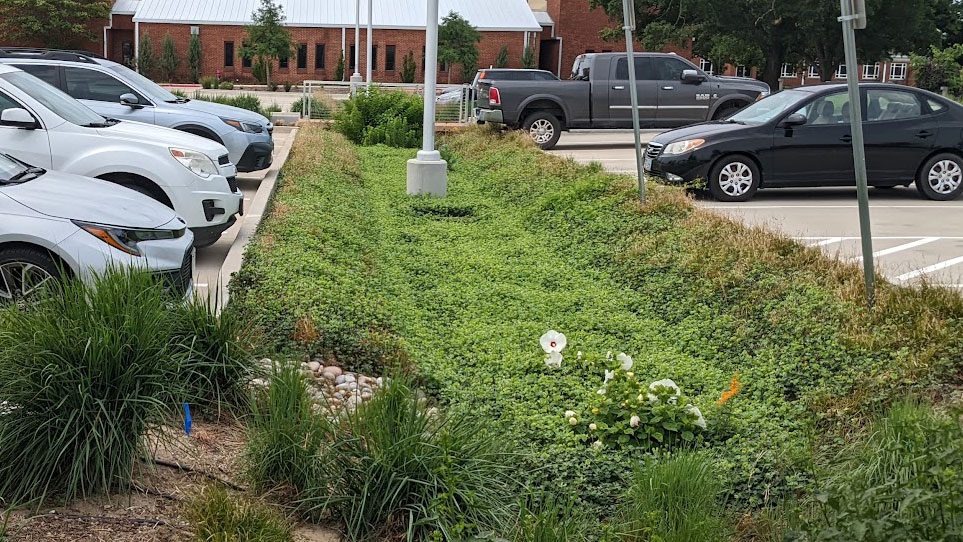
Texas A&M University researchers are teaming up with local stakeholders in the Dallas-Fort Worth metroplex to improve urban stormwater management through a new National Science Foundation (NSF)-funded project intended to prevent stormwater flooding and damage in the rapidly growing region, which scientists say faces increased stormwater flooding risk due to climate change.
The multidisciplinary effort, led by Texas A&M Department of Geography Professor and Texas Water Resources Institute Associate Director Wendy Jepson, is funded through the NSF’s Civic Innovation Challenge (CIVIC) planning grant program that aims to support community-driven, research-based pilot projects across the country. Jepson will collaborate with the Urban Water Innovation and Sustainability Hub (Urban WISH) team at the Texas A&M AgriLife Research and Extension Center in Dallas, along with co-investigators at the University of North Texas.
Their project, “Community-Science Partnership to Enhance Stormwater Management and Equity,” seeks to address the challenge of equitable adaptation through innovative community partnerships and technical tools developed to support adaptive stormwater infrastructure and management, Jepson said. These strategies are also known as blue-green infrastructure (BGI).
BGI supports urban resilience through landscape-scale management of naturalized water-flows and localized stormwater flooding while also offering an array of co-benefits that include on-site pollutant and nutrient uptake from stormwater, biodiversity protection, urban heat island mitigation and air quality improvement, Jepson explained. BGI includes ecological urban landscapes and engineered systems that span urban forests to retention ponds, bioswales, blue-green roofs and rain gardens.
However, as Jepson pointed out, there are considerable barriers to implementation and maintenance of these installations.
“Earlier this year, our group with collaborators at the University of North Texas hosted several workshops with government and community stakeholders to discuss opportunities to advance BGI across the metroplex,” she said. “Time and again, concerns about site selection, community acceptance, equity and management were expressed. More importantly, there was a clear gap between what municipalities could do and support and community interests and expectations.”
The project team seeks to fill that gap by supporting municipal stormwater flooding reduction efforts through innovative community engagement and collaborative governance. Working with community partners such as The Nature Conservancy, Southwest Environmental Finance Center, City of Denton and Texas A&M AgriLife Extension Service volunteers, Jepson said the team will establish a community-science working group. This group will design, execute and assess a pilot community-based green infrastructure asset management (C-GAM) tool, which is modeled after other asset management frameworks and opens new pathways for communities to directly participate in decision-making related to BGI installations across municipalities.
“It is a missing piece in governance that provides meaningful tool for communities to support and guide site development, implementation and maintenance in ways that can increase not only public acceptance of BGI but also public investment,” Jepson said. “Our premise is that small institutional innovation can lead to big change.”
The project’s initial phase, October 2022 to April 2023, will pilot this work in the City of Denton.
Co-principal investigators include Texas A&M faculty Fouad Jaber, professor in the Department of Biological and Agricultural Engineering, and Becky Bowling, assistant professor in the Department of Soil and Crop Science. University of North Texas co-principal investigators include Lauren Fisher, assistant professor in the Department of Public Administration, and Alexandra Ponette-Gonalez, professor in the Department of Geography.

